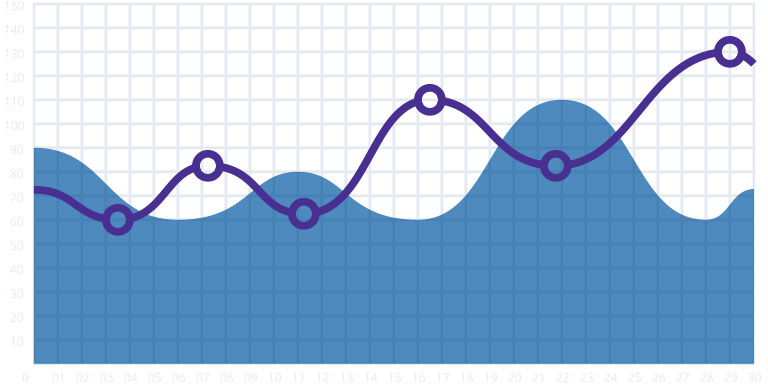
Maturity models have been a part of hospital environments for decades, such as those that aim to drive continuous improvement in process management, continuity of care, organizational design and learning, governance, risk management, compliance, and so on. However, an area that has not traditionally been part of the maturity model conversation — but needs to be part of the focus on today’s complex, rapidly-changing and resource-challenged healthcare landscape — is reporting.
Obviously, this is not because hospitals fail to realize the importance of accessible, accurate and actionable reports. On the contrary, they are fully (and in some cases, painfully!) aware of this requirement. Rather, it is because the shift from manual and paper-based reporting to automated and electronic reporting — characterized by growing reliance on EHRs, analytics, information exchanges, data warehouses, mobile devices, business intelligence systems, and so on — has done more than create promising opportunities: it has also unleashed difficult challenges.
For example, despite significant investments in reporting-related technology, tools and training, many hospitals continue to struggle with disparate data silos, conflicting reports across the enterprise, a backlog of unfulfilled requests, and inflexible reports that fail to give teams the relevant data they need, when they need it. And to make things even more concerning, these challenges are not getting smaller with time and experience. In fact, they are getting bigger and tougher to solve.
The reason for this unwelcome and unexpected reality is rooted in a strange problem with the maturity model design itself, which is typically depicted as a graph with time on the Y-axis (vertical), and evolving stages of development on the X-axis (horizontal). The inference of this layout is that the key factors that drive maturity are time and experience. In other words, the more reporting that hospitals do, the better they will become at it, and the virtuous cycle will continue until reporting achieves a level of sustained excellence (i.e. optimal maturity).
This concept is intuitively appealing and, in many ways, it aligns with individual and collective experience. For example, as kids we endured more than a few skinned knees, bumps and bruises before we mastered the art of bike riding. Time and experience (plus a few boxes of Band-Aids and multiple “ouchie kisses”) were our main inputs. Collectively, we have all been part of groups that started in the “storming” stage, and over time shifted into “performing.”
However, like many other sophisticated competencies, hospital reporting does not improve in a substantial way with just time and experience. Yes, refinements take place, efficiencies are found, damage is managed, and so on. Hospitals do an admirable job of doing the best with what they have at their disposal. But this is a far cry from striving for — and ultimately achieving — sustained excellence. For this to happen, something new from outside the ecosystem needs to be added: and this something new is specialized healthcare reporting consulting.
Specialized healthcare reporting consulting involves hospitals working with proven experts who know how to unlock and drive the technology that they already have, but are not leveraging to their full advantage.
Specialized healthcare reporting consulting is not (yet another) technology investment. It involves hospitals working with proven experts who know how to unlock and drive the technology that they already have, but are not leveraging to their full advantage. The end result of this engagement is a mature reporting function that is characterized by the capacity to:
Time and experience — and the lessons learned that come from that duo — will always be part of climbing up a maturity model, whether the focus is on healthcare reporting, risk management or, indeed, riding a bike. But in many scenarios, time and experience are not enough. In fact, they can be dangerous when they create the false impression that maturity is taking place, when in fact things are not truly getting better. They may even be getting worse.
Specialized healthcare reporting consulting is the external piece of the puzzle that finally enables hospitals to get and stay in control of their reports vs. be controlled by them. Because on today’s healthcare landscape where doing more with less is essential, achieving reporting maturity is no longer an option to thrive. It is an obligation to survive.
At Polaris, we deliver specialized healthcare reporting consulting to help hospitals establish and sustain reporting maturity across the organization. We also use an innovative inclusive billing model that drives measurable results in way that is both cost-effective and client-centric.
To learn more about our solutions, technologies and approach contact Polaris today.